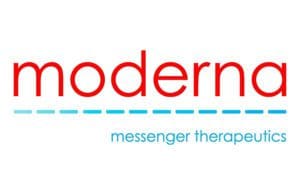 Moderna today touted positive interim clinical data from trials for its mRNA-1273 vaccine candidate against coronavirus (SARS-CoV-2).
Moderna today touted positive interim clinical data from trials for its mRNA-1273 vaccine candidate against coronavirus (SARS-CoV-2).
The Phase I study, led by the National Institute of Allergy and Infectious Diseases (NIAID), part of the National Institutes of Health (NIH), recorded positive early results from the first eight people tested, each of whom received two doses of the vaccine candidate beginning in march.
Volunteers in the study, between age 18 and age 55, were reported at day 43 (two weeks after the second dose) to have levels of binding antibodies at the levels seen in convalescent sera (blood samples from people who have recovered from COVID-19) tested in the same assay.
At day 43, Moderna reported that the levels of binding antibodies significantly exceeded the levels previously seen in convalescent sera. As of right now, samples are not yet available for remaining participants, according to a news release.
Moderna said its mRNA-1273 vaccine candidate was generally safe and well-tolerated, displaying a safety profile consistent with that seen in previous infectious disease vaccine clinical studies conducted by the Cambridge, Mass.-based company.
To date, three participants were compromised with grade 3 systemic symptoms, only following the second dose. All adverse events were transient and self-resolving, with no grade 4 adverse events or serious adverse events reported so far.
“These interim Phase 1 data, while early, demonstrate that vaccination with mRNA-1273 elicits an immune response of the magnitude caused by natural infection starting with a dose as low as 25 µg,” Moderna chief medical officer Dr. Tal Zaks said in the release. “When combined with the success in preventing viral replication in the lungs of a pre-clinical challenge model at a dose that elicited similar levels of neutralizing antibodies, these data substantiate our belief that mRNA-1273 has the potential to prevent COVID-19 disease and advance our ability to select a dose for pivotal trials.”
Based on that Phase I data, Moderna is set to lead a Phase 2 study that will be amended to study two dose levels (50 µg and 100 µg) with the aim of selecting a dose for pivotal studies. Moderna expects the dose for the Phase 3 study to be between 25 µg and 100 µg, anticipating the Phase 3 trial to be initiated in July.
“With today’s positive interim Phase 1 data and the positive data in the mouse challenge model, the Moderna team continues to focus on moving as fast as safely possible to start our pivotal Phase 3 study in July and, if successful, file a BLA,” Moderna CEO Stéphane Bancel said. “We are investing to scale up manufacturing so we can maximize the number of doses we can produce to help protect as many people as we can from SARS-CoV-2.”
Moderna’s studies were supported by funding from the Biomedical Advanced Research and Development Authority (BARDA), a division of the Office of the Assistant Secretary for Preparedness and Response (ASPR) within the U.S. Dept. of Health and Human Services (HHS).
Filed Under: clinical trials, Drug Discovery, Drug Discovery and Development, Infectious Disease





Tell Us What You Think!
You must be logged in to post a comment.